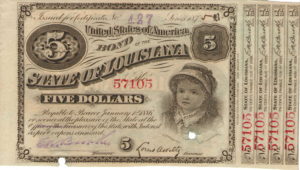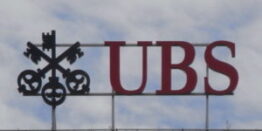
Windsor Street Capital L.P. (formerly known as Meyers Associates L.P.) has been expelled from Financial Industry Regulatory Authority (FINRA) membership, and Arthur Tacopino and Edwin Rodriguez (Windsor Street Capital’s associates) have been barred from associating with any FINRA member in any capacity, all according to a Default Decision issued by FINRA’s Office of Hearing Officers containing findings that (1) profitable trades had been fraudulently allocated by Tacopino in investor accounts (2) a fraudulent markup scheme was executed by Windsor Street (3) omissions and misrepresentations had been purposely made by the firm to customers concerning their investment transactions (4) fraudulent schemes executed by Tacopino and Windsor Street were aided by Rodriguez (5) customers were charged excessive markdowns and markups by Windsor Street and (6) records and books were not maintained by Windsor Street for transactions effected as part of its fraudulent scheme. Department of Enforcement v. Windsor Street Capital L.P. et al. Disciplinary Proceeding No. 2016048912703 (May 28, 2019).
According to the Decision, between January of 2013 and June of 2015, a fraudulent stock allocation scheme was set in motion by Tacopino – an associate who worked in the firm’s operations department. The scheme reportedly entailed undesignated trades being first placed by Tacopino in the firm’s accounts including its riskless principal, average price and bond inventory accounts. Evidently, the trades were assessed by Tacopino to determine whether they were profitable, and if so, those trades were allocated in the accounts of Windsor Street employees.
The unprofitable trades; however, were either directed to accounts owned by Windsor Street customers or were maintained in the firm’s accounts. FINRA found that Tacopino possessed no authorization to allocate the trades in this manner, or the allocations were made by Tacopino while he was concealing the losses on those trades. The Office of Hearing Officers concluded that Tacopino’s conduct in this regard was violative of Securities Exchange Act of 1934 Section 10(b), SEC Rule 10b-5 and FINRA Rules 2010 and 2010. Moreover, FINRA found that Tacopino’s activities in this respect were violative of Securities Act of 1933 Section 17(a)(1) and 17(a)(3) and FINRA Rules 2010.
The Decision stated that between 2013 and 2016, a fraudulent scheme was entered into by Windsor Street affecting 199 trades wherein the firm charged hidden markdowns and markups on the transactions. Evidently, the firm was also cognizant of its misrepresentations to customers concerning the role the securities broker dealer played in the trades. Customers were deprived of key facts concerning the firm’s compensation associated with the trades. The Office of Hearing Officers found the firm’s conduct in this regard to be violative of Securities Exchange Act of 1934 Section 10(b), Rule 10b-5, Securities Act of 1933 Section 17(a) and FINRA Rules 2010 and 2010.
Further, FINRA stated that the 199 securities transactions were executed at excessive, unfair and unreasonable prices. Evidently, customers were charged markdowns, markups or commissions which, when combined with the markdowns and markups that the firm failed to disclose, surpassed five percent of the firm’s costs. The Office of Hearing Officers found the firm’s excessive and unreasonable charges on the 199 transactions to be violative of FINRA Rules 2010 and 2121.
According to the Decision, the firm also made misrepresentations pertaining to 962 transactions. Supposedly, customers were provided transaction confirmations that contained misrepresentations concerning Windsor Street’s role in executing the trades. Apparently, the total compensation which the firm received had been understated by the firm in those confirmations. Consequently, the Office of Hearing Officers stated that the firm’s conduct ran afoul of Securities Exchange Act of 1934 Section 10(b), Rule 10b-10, and FINRA Rules 2010 and 2232.
Furthermore, the Decision stated that the fraudulent stock allocation scheme that Tacopino effected had been executed with Rodriguez’s participation. Particularly, the firm’s accounts had been misused by Rodriguez in the handling of securities trades. Supposedly, the trades were fraudulently allocated by Rodriguez at the direction of Tacopino. Evidently, Rodriguez also aided Windsor Street’s fraudulent markdown and markup scheme. Critically, the Decision stated that it would not have been possible for the fraud to have occurred if it was not for Rodriguez’s help. As a result, Rodriguez violated Securities Exchange Act of 1934 Section 10(b), Securities Act of 1933 Section 17(a), Rules 10b-5 and 10b-10 and FINRA Rules 2010 and 2010.
FINRA’s Office of Hearing Officers also determined that the firm neglected to supervise markdowns and markups; accuracy of information within trade confirmations; proprietary trading; allocations of trades; riskless trades; and disclosures concerning markups. The firm’s conduct was violative of FINRA Rules 3110(a) and National Association of Securities Dealers (NASD) Rule 3010(a).
Evidently, Rodriguez, Tacopino and Windsor Street were served with FINRA’s Complaint; however, they failed to file Answers. Ultimately, a Default Motion was filed by FINRA Department of Enforcement which was granted by FINRA’s Office of Hearing Officers. In addition to being barred by FINRA, Tacopino was required to disgorge $417,368.71 in unlawful gains. Also, Windsor Street was required disgorge $256,550.00, pay $61,559.02 in restitution, and pay a fine of $1,000,000.00.







